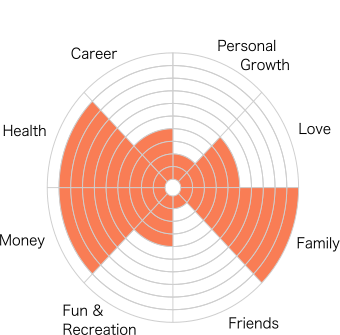Stress: Your job, or just YOU?
Welcome to ASK MERLY: The Countertalk Problem Page, where our resident mental health expert Merly Kammerling answers YOUR questions.
Q:
“I’ve been really evaluating my stress levels over the several months and the impact it has on me. I love the industry but hate the toll the kitchen takes on me and my mental health. I have been thinking about leaving my job for ages because I think it’s the main contributing factor to my stress but I worry it’s all in my head… what if it’s just me and my lack of ability to cope? How do I differentiate between whether it’s my job which is the real cause of my stress or other areas in my life?”
A:
This is such valid question that many find difficult to grasp the answer to, and a huge part of the love-hate relationship with working in hospitality. It’s great that you are paying attention to this as it is so easy in life to bury our heads or go along with quick fixes to alleviate stress levels, but it sounds like you are trying to understand this on a deeper level which I have no doubt is going to be very beneficial to you long-term.
Stress is a normal physiological reaction. The type of stress that has a negative impact on us is called DIStress.
Distress is a very normal reaction to stressors in our life which overwhelm us physiologically and emotionally for one reason or another. Distress is almost impossible to avoid entirely and not all stress is bad – it definitely does have its benefits at work as it keeps us alert and motivated. We’d be pretty much useless in hospitality to some extent without it. But there is certainly a difference between feeling ‘focussed and in the zone’ versus feeling overwhelmed with stressors and feeling like we’re tipping in to some kind of burnout.
Your ability to cope isn’t failing you, your body is actually giving you heads up that you’ve hit capacity – that you’re only human and there’s only so much that you can physically do, think and feel. Identifying the stressors in your life is important in regards to understanding what you potentially do about reducing the harmful effect that distress is having on you, how to recover from the damage that distress has already created and finding a healthier way of living without constantly tipping your scales into distress.
When it comes to distress, look at the evidence of how distress has impacted you and go with your gut instinct.
Something within may be showing up as thoughts, feeling or physical symptoms (or all three) and saying ‘I don’t like this’ or ‘this is too much’. Listen to it, it’s trying to communicate with you and help you to realise that something is off. It is certainly possible that work isn’t the entire culprit, often other aspects in our life impact how we perform and feel about work, so if you do love your job then perhaps there are factors within your role that need to be tweaked or counterbalanced with other things so you are better able to cope and enjoy your role.
But if your intuition is telling you that you need to action more than that and you need a change, then trust your own judgement. This may be a process of trial and error and take some time until you find what feels more sustainable, but any effort towards reducing stress levels and working on your mental health could turn out to be some of the most valuable and productive work that you do.

If you are having difficulty deciphering whether your high stress levels are down to you, your job or other aspects of your stress, then this simple exercise (as shown above) may get you to dig that little bit deeper by enabling you to visualise your life as a whole, and better understand the specific areas of your life that are impacting you negatively and positively.
If you’d like to create and explore your own stress wheel right now, then here’s how…
- Create your own circle and divide into the primary areas of focus in your life. You may use the example headings as shown on the image below or use your own.
- Rank your stress levels from 0 to 10. (10 being is the most stress you could possibly experience and 0 being not stressed at all).
- Reflect on the areas of your life where your stress scores high and potentially how these specific areas impact other areas of your life which are labelled on your wheel.
- It might be useful to also reflect on how reducing the stress in one area of your life may have a natural domino effect and help to reduce the scores in other areas of your life.
- You might also like to think of one or two small but realistic things that could help to reduce your stress levels right now and one or two bigger goals that could help in the future.
Hi Counteralk community,
You know that we’ve got you right? When you’re dealing with those big issues, you want someone who really gets it. Merly is an ex-chef, therapist, stress reduction coach and founder of @me_myself_inmind, which provides workshops, one-to-one therapy and group therapy for you incredible, hard-working, hard-caring people in the hospitality industry. Their mission is built around educating others on stress reduction techniques, mental health awareness and the importance of learning coping skills, emotional resilience and self awareness.
Merly is on hand to answer some of our community’s problems. If you would like to submit a problem, please email askmerly@countertalk.co.uk. All questions are completely confidential and kept 100% anonymous, now and always.
